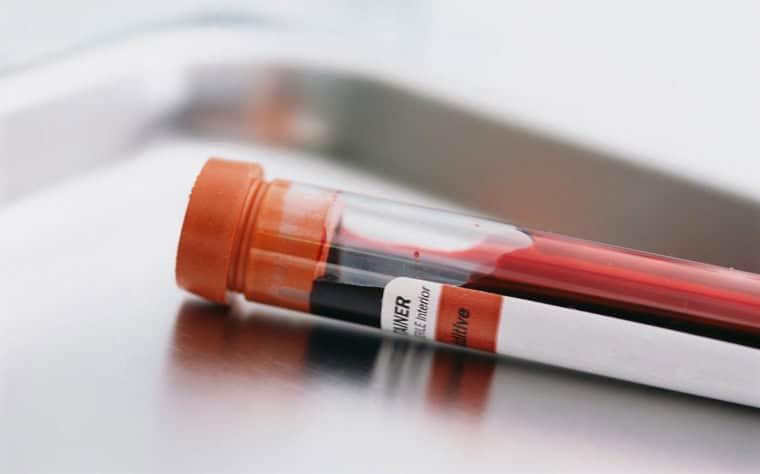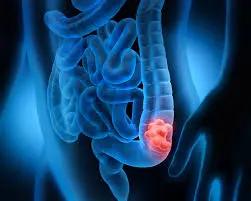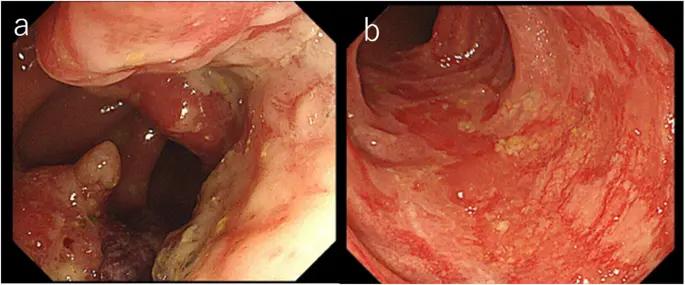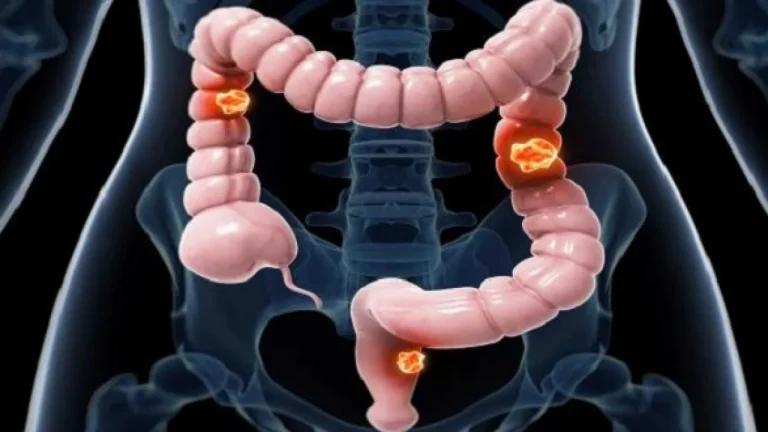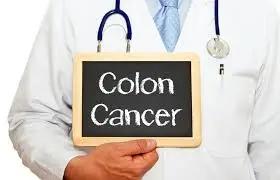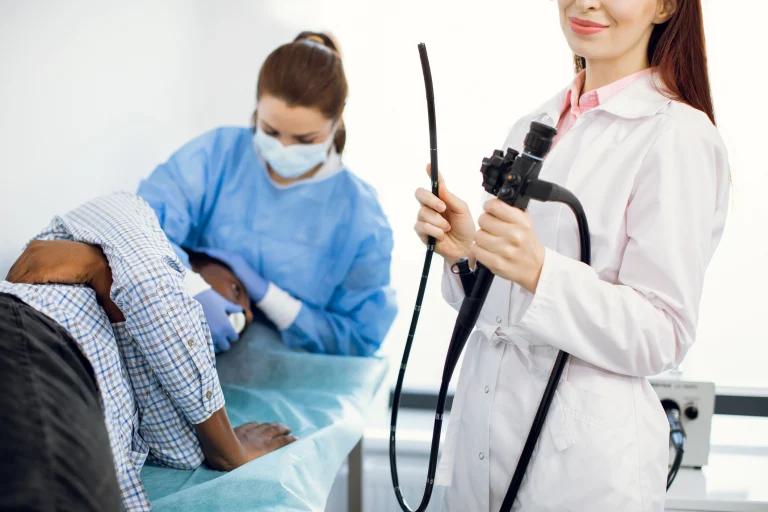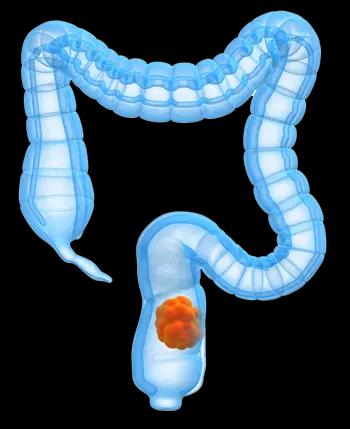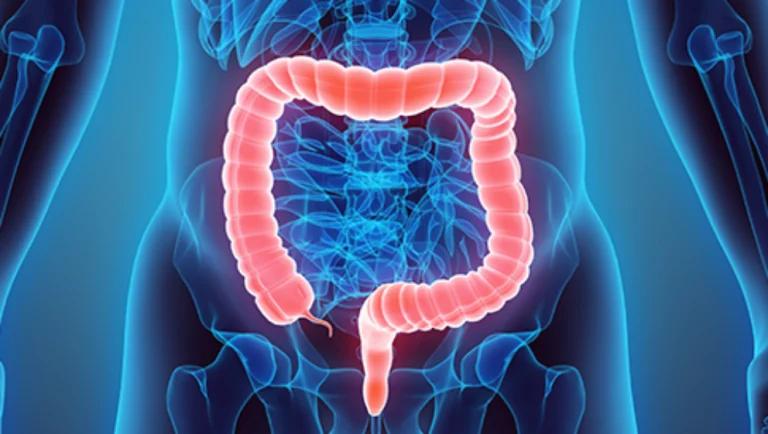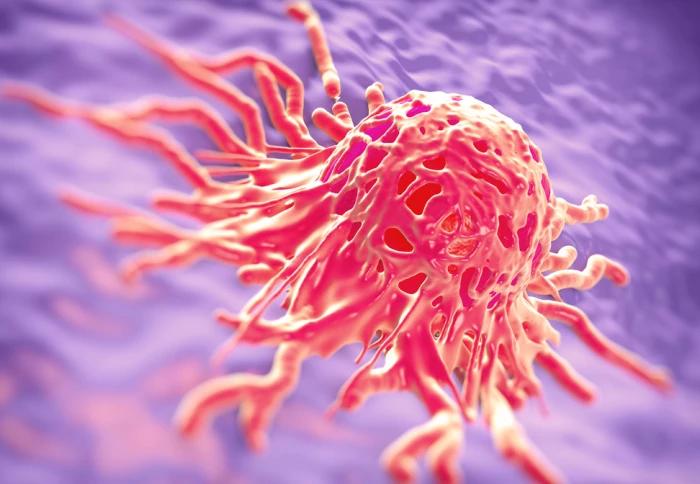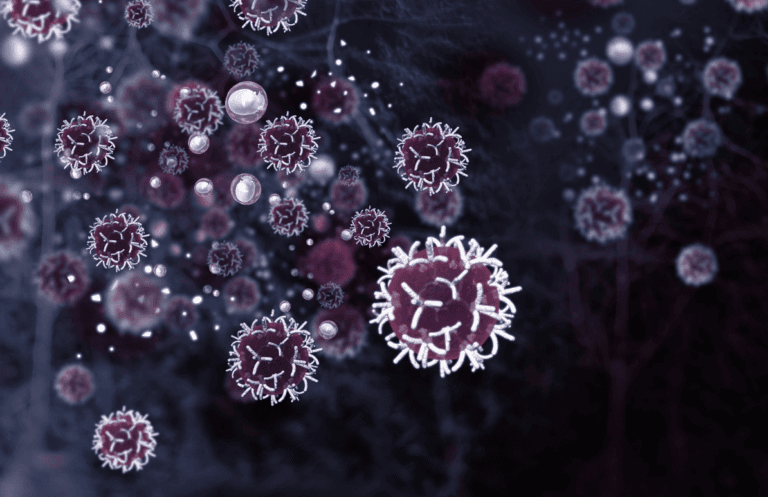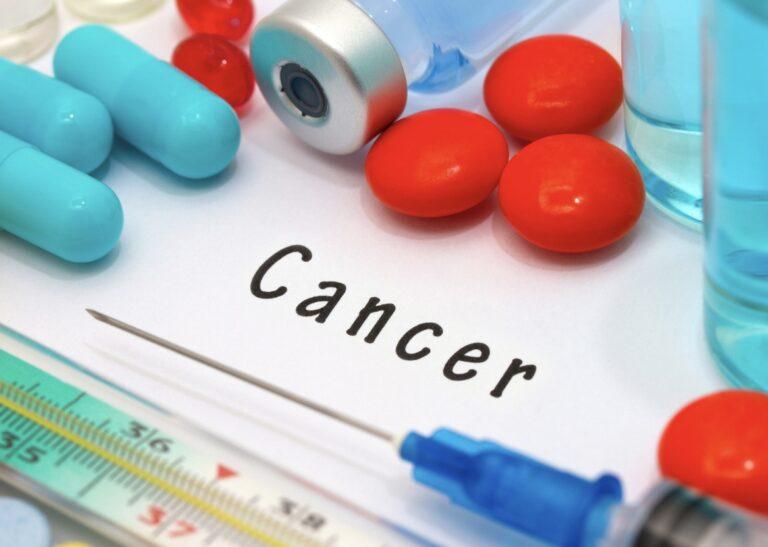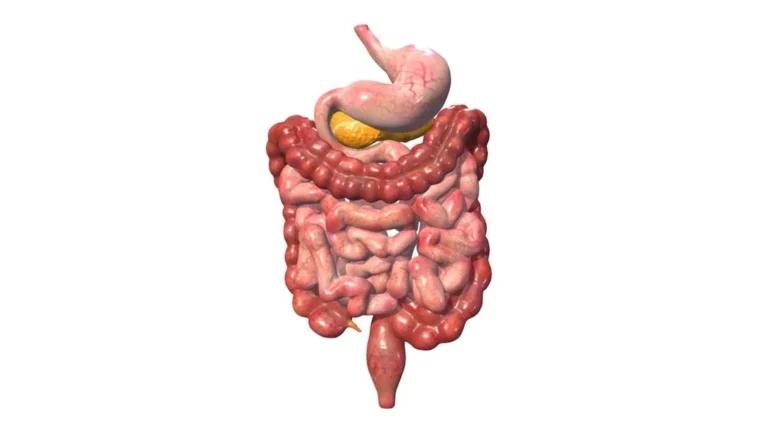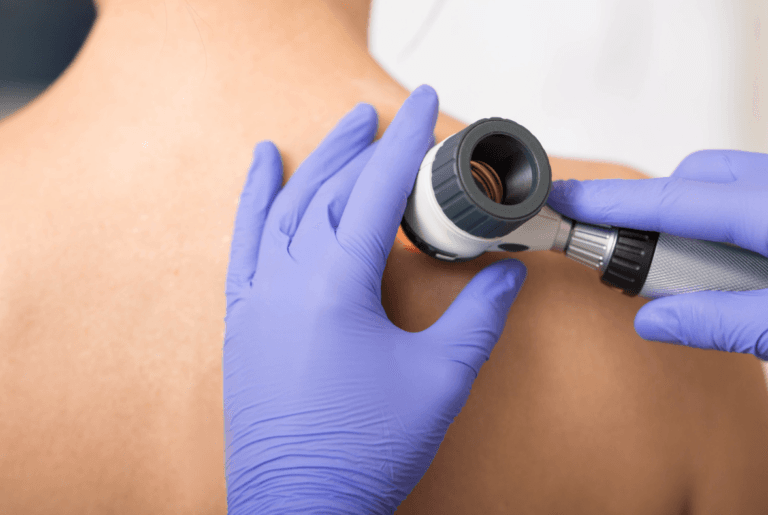Cancer
Get valuable insights into Cancer, including its causes, symptoms, prevention strategies, and treatment options, while also learning about how you can lower the cost of the medications used to treat Cancer.
MEDICAL INFORMATION
Cancer Key Facts
Related Medications
Cancer is a complex and diverse group of diseases characterized by the uncontrolled growth and spread of abnormal cells. There were 10 million deaths from cancer worldwide in 2020, according to cancer research uk. 4 in 10 cancer deaths worldwide are from Lung, bowel, liver, and stomach cancer. Here, we aim to provide you with an in-depth and comprehensive overview of cancer by exploring its definition, types, etiology, risk factors, diagnosis, treatment options, and prevention strategies. We will delve into the biology of cancer, discuss its impact on individuals and society, examine the various diagnostic methods, explore treatment modalities, and highlight the importance of prevention and early detection. By enhancing our understanding of cancer, we can promote awareness, support, and improved outcomes for those affected by this devastating disease.
What is the definition of cancer and what are the types?
Cancer is a broad term encompassing a diverse group of diseases characterized by abnormal cell growth. It is a complex disease that can affect various organs and tissues in the body. There are numerous types of cancer, each with its characteristics, treatment approaches, and prognosis. Here are some of the major types of cancer:
Breast Cancer
Breast cancer originates in the breast tissue, most commonly in the milk ducts or lobules. It predominantly affects women but can also occur in men. Early detection through mammograms and self-examination is crucial for successful treatment.
Bowel Cancer
Bowel cancer is the fourth most common cancer in the UK and the second biggest cancer killer. If diagnosed early, bowel cancer can be treatable and curable. If diagnosed early, almost 9 in 10 people can survive bowel cancer. However, this drops significantly as the disease develops. Early diagnosis can save lives
In the UK, cancer statistics show that more than 16,800 people die from bowel cancer each and every year. Although the number of deaths from bowel cancer has been falling since the 1970’s, it is still the second biggest cancer killer in the UK. Early diagnosis is imperative and public health screening campaigns encourages testing, which means treatment can start earlier and improve outcomes.
Cervical Cancer
Cervical cancer is a cancer that’s found anywhere in the cervix. Nearly all cervical cancers are caused by an infection from certain types of human papillomavirus (HPV).
Lung Cancer
Lung cancer is primarily caused by smoking but can also occur in non-smokers. It develops in the lung tissue and is categorized into two main types: non-small cell lung cancer (NSCLC) and small cell lung cancer (SCLC). Symptoms may include persistent cough, chest pain, and difficulty breathing.
Liver Cancer
The liver is a large organ at the top right side of your tummy. Liver cancer is a cancer that’s found anywhere in the liver. It can sometimes start in the liver (primary) or spread from another organ to the liver (secondary). The seriousness of liver cancer depends on where it is in the liver, how big it is, if it has spread and if it’s primary or secondary. Symptoms of liver cancer include yellowing of the whites of the eye, or skin; loss of appetite; rapid loss of weight, lethargy and tiredness.
Colorectal Cancer
Colorectal cancer affects the colon or rectum, which are parts of the large intestine. It usually begins as benign polyps that can turn cancerous over time. Screening tests, such as colonoscopies, can detect and remove precancerous polyps.
Prostate Cancer
Prostate cancer affects the prostate gland, a small gland in the male reproductive system. It is the most common cancer in men. Prostate cancer often grows slowly and may not cause symptoms in its early stages. Regular screening with a prostate-specific antigen (PSA) blood test is recommended for early detection.
Skin Cancer
Skin cancer originates in the skin cells and is commonly caused by excessive exposure to ultraviolet (UV) radiation from the sun or tanning beds. The main types of skin cancer are basal cell carcinoma, squamous cell carcinoma, and melanoma. Early detection and sun protection are essential in managing and preventing skin cancer.
Bladder Cancer
Bladder cancer starts in the cells lining the bladder. It commonly presents with symptoms such as blood in the urine, frequent urination, and pain during urination. Smoking and exposure to certain chemicals are risk factors for bladder cancer.
Leukemia
Leukemia is a cancer of the blood-forming tissues, such as the bone marrow and lymphatic system. It causes the production of abnormal white blood cells, which interfere with the body’s ability to fight infections. Leukemia can be classified into several types, including acute lymphoblastic leukemia (ALL), acute myeloid leukemia (AML), chronic lymphocytic leukemia (CLL), and chronic myeloid leukemia (CML).
Lymphoma
Lymphoma is a cancer of the lymphatic system, which is a part of the immune system. It is divided into two main types: Hodgkin lymphoma and non-Hodgkin lymphoma. Lymphoma typically presents with enlarged lymph nodes, fatigue, and unexplained weight loss.
Ovarian Cancer
Ovarian cancer affects the ovaries, which are part of the female reproductive system. It is often diagnosed at an advanced stage due to the absence of noticeable symptoms in the early stages. Risk factors include a family history of ovarian or breast cancer, certain genetic mutations, and older age.
Pancreatic Cancer
Pancreatic cancer originates in the pancreas, an organ located behind the stomach. It is often diagnosed at an advanced stage and has a low survival rate. Symptoms may include abdominal pain, jaundice, weight loss, and digestive problems.
These are just a few examples of the many types of cancer that exist. Each type has its own unique characteristics, treatment options, and prognosis. Early detection, prompt medical intervention, and ongoing research are crucial in improving outcomes for individuals diagnosed with cancer.
Rectal Cancer
Rectal cancer is a disease in which malignant cancerous cells form in the tissues of the rectum. Signs of rectal cancer include a change in bowel habits or blood in the stool. Tests that examine the rectum and colon are used to diagnose rectal cancer.
Sarcoma
Sarcoma are rare forms of cancer that have the potential to develop in any part of the body. A prominent indication of sarcoma is the rapid enlargement of a lump. Typically, individuals receive a diagnosis when their sarcoma reaches the size of a large tin of baked beans.
Sarcoma encompasses various types, which can be classified into two main categories:
- soft tissue sarcomas
- bone sarcomas
While sarcomas predominantly affect the arms, legs, and torso, they can also manifest in the stomach, intestines, as well as the areas behind the abdomen and internal reproductive organs.
It is crucial to note that sarcoma is highly uncommon, constituting less than 2% of all cancer cases diagnosed annually in the UK.
Childhood cancer
According to Great Ormond Street Hospital, around Five Children in the UK are diagnosed with cancer each day. Osteosarcoma is the most common type of bone cancer in children. Tumours mostly occur in the bones on either side of the knee and in the upper arm. Symptoms may include bone pain, swelling, redness and bone fracture.
Cancer causes and risk factors
Cancer development is influenced by a combination of genetic, environmental, and lifestyle factors. This section discusses the etiology of cancer and examines the various risk factors associated with its development.
Genetic Factors
Genetic mutations and inherited genetic predispositions can increase an individual’s risk of developing certain types of cancer. This section explores the role of genetics in cancer development.
Environmental Factors
Environmental factors, such as exposure to carcinogens, radiation, and certain chemicals, can contribute to cancer development. This section examines the impact of environmental factors on cancer risk.
Lifestyle Factors
Unhealthy lifestyle choices, including tobacco use, poor diet, physical inactivity, and excessive alcohol consumption can significantly increase the risk of cancer. This section discusses the role of lifestyle factors in cancer development.
What is the pathophysiology and progression of Cancer?
Cancer develops as a result of genetic mutations that disrupt normal cellular processes. This section explores the pathophysiology of cancer, including cell cycle regulation, tumor initiation, promotion, and progression.
What are the common signs and symptoms of Cancer?
Cancer can present with a wide range of symptoms, and the specific symptoms experienced can vary depending on the type and stage of cancer. It’s important to note that these symptoms can also be caused by conditions other than cancer. However, if any of the following symptoms persist or are concerning, it is important to consult with a healthcare professional for a proper evaluation. Here are some common symptoms associated with cancer:
Unexplained Weight Loss
Unintentional weight loss that occurs without changes in diet or physical activity can be a symptom of various types of cancer. Significant and unexplained weight loss of 10 pounds or more should be evaluated.
Fatigue
Persistent fatigue or feeling tired, even after adequate rest, can be a symptom of cancer. Cancer-related fatigue is often described as an overwhelming sense of exhaustion that is not relieved by sleep or rest.
Pain
Persistent or unexplained pain that does not improve with typical interventions can be a symptom of certain cancers. The location and severity of the pain can vary depending on the type and stage of cancer.
Changes in the Skin
Changes in the skin can be a sign of certain types of cancer. These changes may include darkening or yellowing of the skin, excessive hair growth, changes in moles or skin growths, or the development of new skin abnormalities.
Changes in Bowel or Bladder Habits
Changes in bowel or bladder habits can be indicative of certain cancers. These changes may include persistent constipation or diarrhea, blood in the stool or urine, changes in urine frequency or color, or persistent urinary urgency.
Persistent Cough or Hoarseness
A persistent cough, hoarseness, or voice changes that do not resolve can be symptoms of lung, throat, or other types of cancers affecting the respiratory system.
Unexplained Lumps or Swellings
The presence of unexplained lumps or swellings in any part of the body, such as the breasts, testicles, lymph nodes, or other areas, can be a sign of cancer. These lumps may be painless or tender.
Changes in Appetite
Significant changes in appetite, such as loss of appetite or a persistent feeling of fullness, can be indicative of certain types of cancer.
Difficulty Swallowing or Indigestion
Persistent difficulty swallowing or ongoing indigestion can be symptoms of gastrointestinal cancers, such as esophageal, stomach, or pancreatic cancer.
Persistent Fever or Infections
Frequent infections or a persistent unexplained fever can be signs of certain types of cancer, particularly blood cancers such as leukemia.
Changes in the Menstrual Cycle
Unusual changes in the menstrual cycle, including heavy or prolonged periods, irregular bleeding, or bleeding after menopause, may be indicative of gynecological cancers.
Bone Pain
Bone pain that is persistent, severe, or unexplained can be a symptom of bone cancer or cancers that have spread to the bones.
It is important to remember that these symptoms can be caused by various conditions, and experiencing one or more of these symptoms does not necessarily mean that a person has cancer. However, if any of these symptoms are persistent, unexplained, or concerning, it is recommended to consult with a healthcare professional for further evaluation and appropriate testing. Early detection and timely medical intervention are crucial for effective cancer management.
What are the methods used to diagnose Cancer?
Accurate and timely diagnosis is essential for determining the presence, location, and stage of cancer. This section explores various diagnostic methods used in cancer detection, including imaging techniques, biopsy, tissue analysis, and laboratory tests.
Imaging Techniques
Imaging techniques, such as X-rays, computed tomography (CT), magnetic resonance imaging (MRI), and positron emission tomography (PET), help visualize and locate tumors. This section examines the role of imaging in cancer diagnosis.
Biopsy and Tissue Analysis
A biopsy involves the removal and examination of a tissue sample to determine the presence of cancer cells. This section discusses different biopsy techniques and the importance of tissue analysis in cancer diagnosis.
Laboratory Tests and Biomarkers
Laboratory tests, including blood tests and molecular profiling, can provide valuable information about cancer, including the presence of specific biomarkers. This section explores the role of laboratory tests in cancer diagnosis and treatment planning.
What is Staging and Grading in Cancer?
Cancer staging and grading are two important factors used to determine the extent of cancer progression and its aggressiveness. Staging describes the extent of cancer spread, while grading evaluates the cancer cells’ appearance and behavior. The staging and grading systems vary depending on the type of cancer, but here is a general overview:
Cancer Staging
The most commonly used staging system is the TNM system developed by the American Joint Committee on Cancer (AJCC). It considers three key factors:
1. Tumor (T):
Tumor size and invasion into nearby tissues are assessed. The T category is represented by numbers or letters, indicating the extent of tumor growth. Higher numbers typically indicate larger tumors or more extensive local invasion.
2. Lymph Nodes (N):
The involvement of nearby lymph nodes is evaluated. The N category indicates the number and location of affected lymph nodes. The absence of lymph node involvement is denoted by N0 while increasing numbers indicate the presence of affected lymph nodes.
3. Metastasis (M):
Metastasis refers to the spread of cancer to distant organs or tissues. The M category indicates whether metastasis has occurred. M0 denotes no distant metastasis, while M1 represents the presence of distant metastasis.
Combining the T, N, and M categories provides an overall stage designation, typically represented by Roman numerals ranging from I to IV. Higher stage numbers indicate a more advanced stage of cancer with increased spread.
Cancer Grading
Cancer grading assesses the appearance and behavior of cancer cells under a microscope. It helps determine how closely the cancer cells resemble normal cells and predicts the cancer’s aggressiveness. The most common grading system is the Gleason system used for prostate cancer, while other grading systems exist for different types of cancer.
The Gleason grading system assigns a score based on the pattern of cancer cell growth and differentiation. It involves evaluating the two most prominent patterns observed in a biopsy sample. Each pattern is assigned a score ranging from 1 to 5, with 1 representing well-differentiated cells (resembling normal cells) and 5 representing poorly differentiated cells (highly abnormal).
The two scores are then added together to give a Gleason score ranging from 2 to 10. Higher Gleason scores indicate a higher grade and more aggressive cancer behavior.
Other grading systems may use different criteria specific to the type of cancer, but they generally aim to classify cancer cells into different grades or levels of differentiation.
It’s important to note that staging and grading systems can vary for different types of cancer, and not all cancers use the TNM staging system or the Gleason grading system. It’s essential to consult with healthcare professionals familiar with the specific type of cancer for accurate staging and grading information. These assessments help guide treatment decisions and provide prognostic information for patients with cancer.
What are the treatment options for Cancer?
The treatment of cancer depends on various factors, including the type, stage, and individual characteristics of the patient. This section provides an overview of the major treatment modalities used in cancer management.
Surgery
Surgery involves the removal of tumors or affected tissues and is often the primary treatment for solid tumors. This section discusses different surgical procedures used in cancer treatment.
Radiation Therapy
Radiation therapy utilizes high-energy radiation to destroy cancer cells and shrink tumors. This section explores the different types of radiation therapy and their applications.
Chemotherapy
Chemotherapy involves the use of drugs to kill cancer cells or slow their growth. This section discusses the different types of chemotherapy and their administration methods.
Targeted Therapy
Targeted therapy focuses on specific molecular targets in cancer cells to disrupt their growth and survival. This section explores targeted therapy options and their mechanisms of action.
Immunotherapy
Immunotherapy aims to enhance the body’s immune response against cancer cells. This section discusses the various immunotherapy approaches, including immune checkpoint inhibitors and CAR-T cell therapy.
Hormone Therapy
Hormone therapy is used to treat hormone-sensitive cancers, such as breast and prostate cancer, by blocking or suppressing hormone activity. This section explores the role of hormone therapy in cancer treatment.
Stem Cell Transplantation
Stem cell transplantation involves replacing damaged or destroyed bone marrow with healthy stem cells to treat certain cancers, such as leukemia and lymphoma. This section discusses the different types of stem cell transplantation.
What medications are used in Cancer?
Chemotherapy Medications:
- Doxorubicin
- Paclitaxel
- Cyclophosphamide
- Fluorouracil (5-FU)
- Cisplatin
- Carboplatin
- Gemcitabine
Targeted Therapies:
- Trastuzumab
- Rituximab
- Imatinib
- Erlotinib
- Bevacizumab
- Crizotinib
- Lapatinib
Immunotherapies
- Pembrolizumab
- Nivolumab
- Ipilimumab
- Atezolizumab
- Durvalumab
- Rituximab
- Brentuximab vedotin
Hormonal Therapies
- Tamoxifen
- Aromatase inhibitors (e.g., Anastrozole, Letrozole)
- Leuprolide
- Degarelix
- abiraterone acetate
- Enzalutamide
What are the palliative care and supportive therapies options available to me in the UK?
In the UK, palliative care and supportive therapies play a vital role in providing comprehensive care for individuals with cancer. Palliative care focuses on enhancing the quality of life and providing physical, emotional, and psychosocial support for patients and their families throughout the cancer journey. Here are some of the palliative care and supportive therapy options available in the UK
Palliative Care Services
Palliative care teams consist of healthcare professionals specialized in providing symptom management, pain relief, and emotional support for individuals with cancer. These services can be provided in hospitals, hospices, or the patient’s home, depending on their needs and preferences.
Hospice Care: Hospices are specialized facilities that provide comprehensive palliative care for individuals with advanced cancer or life-limiting illnesses. They offer a multidisciplinary approach, including medical care, pain and symptom management, emotional and spiritual support, and counseling for patients and their families.
Pain and Symptom Management: Palliative care teams work closely with individuals to manage cancer-related pain and other distressing symptoms. They may prescribe medications, recommend alternative therapies, and provide support for managing side effects of treatment, such as nausea, fatigue, and insomnia.
Emotional and Psychological Support: Psychosocial support is a crucial component of palliative care. Mental health professionals, such as psychologists or counselors, can provide counseling and emotional support to individuals and their families, helping them navigate the emotional challenges associated with cancer and end-of-life care.
Complementary and Alternative Therapies: Various complementary therapies can be incorporated into palliative care to support well-being and enhance the quality of life. These may include massage therapy, acupuncture, aromatherapy, relaxation techniques, and music or art therapy. These therapies can help alleviate stress, promote relaxation, and provide comfort.
Support for Carers and Family Members: Palliative care services also extend support to family members and caregivers who play a crucial role in the care of individuals with cancer. They may receive practical guidance, respite care, and emotional support to help them cope with the challenges and demands of caregiving.
Advance Care Planning: Palliative care teams can assist individuals in discussing and documenting their preferences for end-of-life care through advanced care planning. This involves exploring treatment options, discussing goals of care, and making decisions regarding resuscitation, life-sustaining interventions, and other medical interventions in line with the individual’s wishes.
Bereavement Support: After the loss of a loved one, bereavement support services are available to provide counseling and emotional support to family members and caregivers. These services can assist in the grieving process and help individuals adjust to life after the loss of their loved one.
It is important to note that palliative care can be provided alongside curative or life-prolonging treatments and can be initiated at any stage of the disease. The availability and access to palliative care and supportive therapies may vary depending on the location and individual circumstances. Healthcare professionals, including oncologists, palliative care specialists, and nurses, can guide individuals and their families in accessing appropriate services based on their specific needs and preferences.
In the UK, several organizations and resources support palliative care and provide information on available services, such as Marie Curie, Macmillan Cancer Support, and Hospice UK. These organizations can offer guidance, support, and access to local palliative care services across the country.
What are the palliative care and supportive therapies options available to me in the USA?
In the USA, palliative care and supportive therapies play a crucial role in providing comprehensive care for individuals with cancer. Palliative care focuses on improving quality of life, managing symptoms, and providing emotional and psychosocial support for patients and their families. Here are some of the palliative care and supportive therapy options available in the USA
Palliative Care Teams: Palliative care teams consist of healthcare professionals, including doctors, nurses, social workers, and counselors, who specialize in providing holistic care for individuals with cancer. They work collaboratively with the patient’s oncology team to manage symptoms, address psychosocial needs, and enhance overall well-being.
Hospice Care: Hospice care is a specialized form of palliative care that focuses on providing comfort and support for individuals with advanced cancer or terminal illnesses. Hospice care can be provided in the patient’s home, a dedicated hospice facility, or a hospital, depending on their needs and preferences. It offers comprehensive services, including pain and symptom management, emotional support, and assistance with end-of-life planning.
Pain and Symptom Management: Palliative care teams prioritize effective pain management and symptom control. They work closely with patients to develop individualized plans that may include medications, interventional procedures, physical therapy, and integrative approaches to alleviate pain and manage symptoms such as nausea, fatigue, and shortness of breath.
Emotional and Psychosocial Support: Psychosocial support is a crucial component of palliative care. Social workers, psychologists, and counselors can provide emotional support, assist with communication and coping strategies, offer counseling for patients and their families, and help navigate the emotional challenges associated with cancer and end-of-life care.
Spiritual Care: Many palliative care programs have chaplains or spiritual care providers who can offer support and guidance based on the patient’s spiritual or religious beliefs. They can provide counseling, assist with existential concerns, and offer spiritual comfort and guidance during the cancer journey.
Complementary and Integrative Therapies: Supportive therapies such as massage therapy, acupuncture, yoga, meditation, and art therapy can be incorporated into palliative care to promote relaxation, reduce stress, and enhance overall well-being. These therapies can be used alongside medical treatments to provide a holistic approach to care.
Caregiver Support: Palliative care teams recognize the essential role of caregivers and provide support to family members and caregivers who are often involved in the care of individuals with cancer. They may offer respite care, educational resources, and counseling to help caregivers navigate their roles and cope with the challenges they may face.
Advance Care Planning: Palliative care teams can assist patients and their families with advanced care planning, including discussions about treatment goals, preferences for end-of-life care, and documentation of advance directives. These discussions help ensure that the patient’s wishes are respected and that appropriate care is provided in line with their values and goals.
Palliative care services are available in various settings, including hospitals, cancer centers, hospice facilities, and home-based care. Availability and access to palliative care may vary depending on the location and individual circumstances. Healthcare providers, including oncologists, palliative care specialists, and nurses, can guide patients and their families in accessing appropriate services and resources based on their specific needs and preferences.
In the USA, several organizations and resources support palliative care and provide information on available services, such as the American Academy of Hospice and Palliative Medicine (AAHPM) and the National Hospice and Palliative Care Organization (NHPCO). These organizations can offer guidance, support, and access to local palliative care services across the country.
What are Cancer prevention strategies?
Preventing cancer involves a multifaceted approach that includes lifestyle modifications, vaccinations, screening, and genetic counseling. This section discusses various prevention strategies and their effectiveness.
Lifestyle Modifications
Adopting a healthy lifestyle, including regular exercise, a balanced diet, and avoiding tobacco and excessive alcohol consumption, can reduce the risk of cancer. This section explores the impact of lifestyle modifications on cancer prevention.
Vaccinations
Vaccinations against certain viruses, such as human papillomavirus (HPV) and hepatitis B, can significantly reduce the risk of developing associated cancers. This section discusses the importance of vaccinations in cancer prevention.
Screening and Early Detection
Regular cancer screening tests, such as mammograms, Pap smears, colonoscopies, and prostate-specific antigen (PSA) tests, can help detect cancer at an early stage when treatment is most effective. This section explores the importance of screening and early detection in cancer prevention.
Genetic Counselling and Testing
Genetic counseling and testing can identify individuals at increased risk of certain hereditary cancers. This section discusses the role of genetic counseling and testing in cancer prevention and management.
What is the Impact of Cancer on Individuals and Society?
Cancer has profound physical, emotional, social, and economic impacts on individuals and society as a whole. This section explores the multifaceted impact of cancer and highlights the importance of support and resources for those affected.
Physical and Emotional Impact
Cancer and its treatment can cause a range of physical symptoms and emotional distress. This section discusses the physical and emotional impact of cancer and the importance of holistic care.
Social and Economic Impact
Cancer places a significant burden on individuals, families, and society, including financial challenges, employment issues, and strained social relationships. This section examines the social and economic impact of cancer and the need for comprehensive support systems.
Emerging Research and Developments in Cancer
Ongoing research and advancements in cancer research offer promising developments in prevention, diagnosis, and treatment. This section highlights emerging research trends, including precision medicine, targeted therapies, and immunotherapies.
What Cancer support organizations are there available to support me in the UK?
- Macmillan Cancer Support: Macmillan Cancer Support is one of the largest cancer support organizations in the UK. They offer a wide range of services including emotional support, practical advice, financial assistance, information resources, online communities, and helplines
- Cancer Research UK: Cancer Research UK is a leading cancer charity that funds research, provides information resources, and offers support to individuals affected by cancer. They provide information on different types of cancer, treatment options, and clinical trials, and offer a nurse-led helpline
- Marie Curie: Marie Curie is a charity that provides care and support for people living with terminal illnesses, including cancer. They offer nursing care, hospice services, support for families, and a helpline for individuals seeking advice and information
- CLIC Sargent: CLIC Sargent is a charity organization that supports children and young people with cancer and their families. They provide practical, financial, and emotional support, as well as accommodation services near treatment centers
- Teenage Cancer Trust: Teenage Cancer Trust is a charity organization that specializes in supporting teenagers and young adults with cancer. They provide age-specific support, specialist units within hospitals, and a range of services to meet the unique needs of young cancer patients
- Cancer Support UK: Cancer Support UK offers various support services for individuals affected by cancer, including free therapy sessions, support groups, and telephone counseling. They aim to enhance emotional well-being and provide practical support to those impacted by cancer
What Cancer support organizations are there available to support me in the US?
- American Cancer Society (ACS): The American Cancer Society is a comprehensive cancer support organization that offers a wide range of services including patient support programs, information resources, educational materials, helplines, transportation assistance, and lodging programs for individuals receiving treatment away from home
- National Cancer Institute (NCI): The National Cancer Institute is part of the National Institutes of Health (NIH) and is the US government’s principal agency for cancer research. They provide information on cancer types, treatment options, clinical trials, and research advancements
- CancerCare: CancerCare is a national non-profit organization that provides free professional support services to individuals affected by cancer, including counseling, support groups, financial assistance, and educational resources. They also offer specialized programs for specific cancer types and populations
- Livestrong Foundation: The Livestrong Foundation offers support programs, counseling services, and educational resources for individuals affected by cancer. They focus on empowering individuals to take an active role in their cancer journey, addressing the physical, emotional, and practical needs of patients and survivors
- Leukemia & Lymphoma Society (LLS): The Leukemia & Lymphoma Society is dedicated to supporting individuals with blood cancers, including leukemia, lymphoma, and myeloma. They provide resources, support groups, financial assistance, and patient education programs
- Patient Advocate Foundation (PAF): The Patient Advocate Foundation offers personalized case management and support services to individuals with cancer, helping them navigate insurance, access treatment, and address financial challenges. They also provide educational resources and assistance in resolving healthcare-related issues
Summary
Cancer is a complex disease with significant impacts on individuals and society. By understanding its etiology, risk factors, diagnosis, treatment options, and prevention strategies, we can work towards improving outcomes, promoting early detection, and supporting individuals and families affected by cancer. Continued research, awareness, and access to comprehensive care are crucial in the fight against cancer.
Medical Disclaimer
NowPatient has taken all reasonable steps to ensure that all material is factually accurate, complete, and current. However, the knowledge and experience of a qualified healthcare professional should always be sought after instead of using the information on this page. Before taking any drug, you should always speak to your doctor or another qualified healthcare provider.
The information provided here about medications is subject to change and is not meant to include all uses, precautions, warnings, directions, drug interactions, allergic reactions, or negative effects. The absence of warnings or other information for a particular medication does not imply that the medication or medication combination is appropriate for all patients or for all possible purposes.













